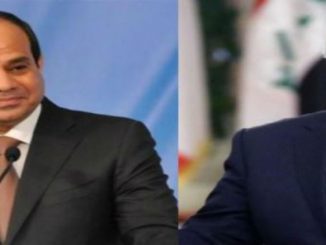
Twin brothers allegedly killed their mother in Saudi Arabia after she tried to stop them from joining ISIS in Syria in a case that outraged Saudi Arabians worried about rising extremist militancy.
The June 24 killing, in a country where respect for elders is seen as a bedrock of society, whipped up a storm of debate over the possible influence of a medieval scholar revered as a forerunner of Saudi Arabia’s Wahhabi school of Sunni Islam.
Saudi interior ministry spokesman General Mansour Al-Turki said the pair were suspects in the killing.
“The only thing [we have established] is that they follow Takfiri ideology,” Gen Al-Turki said, using a phrase which Saudi authorities use to refer to extremist militancy.
The interior ministry said the 20-year-old twins, Khaled and Saleh Al Oraini, were arrested on suspicion of stabbing their 67-year-old mother Haila, their 73-year-old father and their 22-year-old brother at the family home in Riyadh.
The mother, who died of her wounds, had objected to her sons joining ISIS in Syria, Saudi media reported.
The father and brother were in hospital in a serious condition, while the alleged attackers were arrested trying to flee across the border to Yemen.
“Had this come from drug addicts or ignorant youth, it would not have been unusual,” said Saudi writer Mohammad Ali Al-Mahmoud. “The shock is that it came from a pair of religious children acting in the name of Islam.”
This is the fifth killing of family members by suspected militants in Saudi Arabia since July last year, the online Saudi news website akhbaar24 reported.
There have been similar cases of other killings of close relatives by ISIS members, including a widely reported incident in January in which a suspected militant killed his mother in public in the Syrian city of Raqqa because she had encouraged him to leave the group.
The case of the twins has caused impassioned debate because Islam teaches that devotion to caring for elders is a pathway to heaven.
Some scholars and media commentators have asked if it was the teachings of Ibn Taymiyya, a 13th-century scholar from Damascus known for his fatwas [religious opinion] about takfir that were behind young militants killing family members they regarded as apostates. Saudi arabia
Where do ISIS’s roots go?
ISIS embraces the concept of takfir, often quoting Ibn Taymiyya to exhort its followers to kill other Muslims seen as apostates, including relatives. It was Ibn Taymiyya who inspired the founder of Wahhabism, the 18th century Sheikh Mohammed Ibn Abdul-Wahhab. Wahhabism, the religious movement espoused by rulers of Saudi Arabia, demands rigid adherence to what it sees as Islam’s original practices.
The Saudi government rejects any talk of links between the message of Ibn Abdul-Wahhab and that of modern militancy, denouncing ISIS and Al Qaeda as terrorists and religious heretics.
But Riyadh’s official stance has not prevented scholars and commentators from seizing on the latest killing to dissect the degree to which Ibn Taymiyya is responsible for motivating today’s extremists.
“Some are angry at me for pointing out the legacy of Ibn Taymiyya in the religious violence that is sweeping us,” prominent scholar, Abdul-Salam Al Wail, professor of sociology at King Saud University, wrote on his Twitter account.
“To the Sheikh Al-Islam [Ibn Taymiyya], human life is cheap and his legacy clarifies this,” he added, using the honorific of the renowned scholar, who spent time in jail for his beliefs and who resisted Mongol invaders.
Professor Wail said that while Ibn Taymiyya was a prolific scholar for his time, he pointed to his fatwas that permit a son to kill an apostate father, saying they contradict the essence of Islam.
The case drew a rare intervention from the Saudi Islamic affairs minister, Saleh bin Abdul-Aziz Al Al Sheikh, who was quoted as saying that Ibn Taymiyya’s fatwa allowing a son to kill his father had been taken out of context.
Writing on Twitter after the killing, columnist Mohammed Al-Sheikh called for reviewing “our readings of the theological heritage of Ibn Taymiyya” to clarify it belonged “to a different time and different circumstances. Otherwise, terrorism will not end.”



